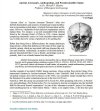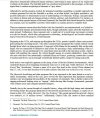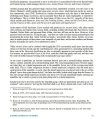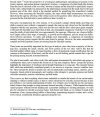That's a good point and something I am sometimes guilty of myself. So many UFO stories are such hyped up nothings and it seems the more hype the more coverage and the more popular the hypsters become.
When I was a young kid I found some old books laying around, I think one about George Adamski, and one by Eric Von Danakin. Even as a kid who essentially just started reading, I felt my intelligence was insulted. To be honest, I was so dissapointed, or annoyed, that I threw the books in the trash. Then we had the tabloids: bat boy found in cave, Elvis had a baby with an alien, etc. And we had the Ancient Aliens TV show. The History channel went from a history channel to a paranormal entertainment channel, along with the Discovery channel. Now we have a reality TV show about Skinwalker Ranch that hypes up everything from bugs to led lights in the distance as a paranormal, UFO related mystery.
There is more than enough non-sense going on to not only convince people that it's all nonsense, but to anger people and make them push back against the whole UFO subject altogether.
Before I had my UFO sighting, my view was that most of what we see about UFOs is made for entertainment, to sell books, documentaries, and TV shows. Some was run of the mill delusion. But, that there might be something to some of the events.
As a UFO witness who is a skeptic by nature, what I saw was compelling enough to convince me that some UFOs are probably unconventional. I am probably even more annoyed by much of the unscrupulousness within the UFO entertainment industry (although I don't think all people in the business are unscrupulous).
But, I've also come to learn that this kind of unscrupulousness is pretty much everywhere. It's in politics, it's in social media, it's in popular science articles, its in advertising, it's in YouTube videos (where misleading clickbait titles and thumbnails has become the norm). It spans topics including health, diet, science, spirituality, economics, international relations, politics, etc. It's just a general property of human culture, maybe human nature, at this point. It would be that way if some UFOs are real unconventional technologies, and it would be if they weren't. And you could use the cynicism that you get from observing this property to cast doubt on just about any claim.
The way to get past that, is through a responsible scientific approach. Keep an open mind within the confines of what we know, and suspend belief until we can verify something objectively to a high enough degree of certainty. In the mean time, you have no choice but to use thought experimentation, and subjective reasoning, to determine what is worthwhile to investigate.
From years of looking into the topic from a serious point of view after my own sighting, I feel like there is reason enough to convince even a skeptical minded person that has not had an experience of the scientific merit of studying the phenomenon, and even to be open to the possibility that some UFO sightings have unconventional explanations. I will admit that you may need to steel-man this point of view to come to that conclusion.





